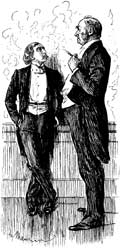No easy answers, no simple truths…
Thanks to Charles Follymacher for this link to Prometheus 6. I’ve spent some time over the last several months reading and thinking about disparities of treatment in the criminal justice system in the US. One of the gross inequities involves differential sentencing guidelines for crack versus powder cocaine. Judge Greg Mathis writes,
Ten years after the sentencing laws were enacted, the average federal drug sentence for African-Americans was 49 percent higher than that of whites, the number of women in prison for drug offenses increased by 421 percent, and there was a more than 80 percent increase in the federal prison population. Under the previous law, a dealer with five grams of crack cocaine received the same punishment as one who had 500 grams of powder cocaine — a 100-to-1 disparity. Supporters of the inequitable sentencing claimed crack cocaine was more dangerous than powder cocaine and should therefore come with stricter sentences. Studies later showed that crack cocaine was no more dangerous than powdered cocaine.
Commenting on the recent Supreme Court ruling regarding inequitable sentencing, Mathis says,
[Now,] A little over 20 years later, the Supreme Court has issued a ruling that gives judges much more power when sentencing drug offenders. With this new freedom, judges can use their influence to encourage rehabilitation and education, saving taxpayers billions and turning around the lives of many young people of color.
Charles’ link points to data that are subject to interpretation and that Prometheus 6 calls bullshit. The growth of a healthy black middle class is happening at the same time as incarceration rates for young black males are through the roof. The source essay from the Electronic Village that Prometheus 6 analyzes may have some factual errors, and it may perpetuate some myths. But the last part of the essay is an imprecation for us to help each other, for black people to help get the young men in the community a hand up in terms of educational success. The Villager’s essay ends with this:
Please consider these simple goals that can lead to solutions for fixing the problems of young Black men:
Short term
- Teach all Black boys to read at grade level by the third grade and to embrace education.
- Provide positive role models for Black boys.
- Create a stable home environment for Black boys that includes contact with their fathers.
- Ensure that Black boys have a strong spiritual base.
- Control the negative media influences on Black boys.
- Teach Black boys to respect all girls and women.
Long term
- Invest as much money in educating Black boys as in locking up Black men.
- Help connect Black boys to a positive vision of themselves in the future.
- Create high expectations and help Black boys live into those high expectations.
- Build a positive peer culture for Black boys.
- Teach Black boys self-discipline, culture and history.
- Teach Black boys and the communities in which they live to embrace education and life-long learning.
I could pick these lists apart some from my own biases, but in general don’t they outline a solid programmatic response to a real problem? Even if the numbers in the essay are wrong, the assumptions skewed, the facts remain that a lot of children in working class black homes face problems that end in jails, institutions, or death. Let’s keep our eye on the progress we’re making, like the latest Supreme court decision, and like the successful emergence of a solid self sustaining healthy black middle class, but let’s not count the battle won until it’s over.


